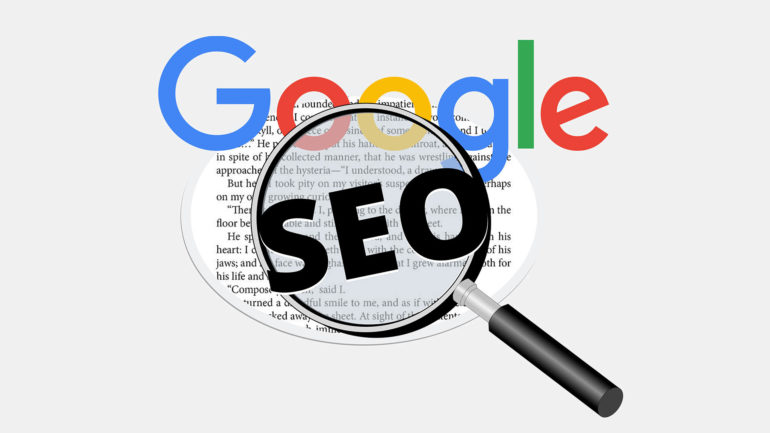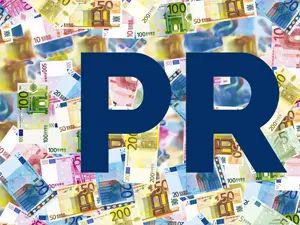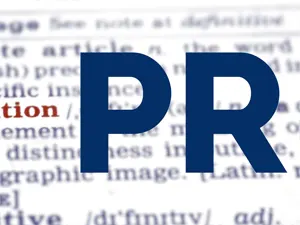
B2B Search Engine Optimization
If your company does not appear on the first page of Google searches for relevant keywords, it is practically non-existent. According to the online analysis site gs.statcounter.com, almost 92 percent of Germans used Google for their online searches in 2020. Therefore, it is all the more important to know how one’s own website can reach the top of the search results with a good SEO strategy. Vogel Communications has published a detailed white paper on this topic, “B2B Search Engine Optimization 2020”. We summarize the most important contents here.
What is SEO?
In general, Google’s motto is: “The user comes first, everything else follows by itself.” For Google, it is therefore important to deliver good and relevant results for a search query in order to keep user satisfaction high. Therefore, content that does not sufficiently address the searched topic is filtered out by Google. However, content relevance does not necessarily mean that one’s own content will also rank in the top positions of the search queries. And this is exactly where SEO comes in. Search Engine Optimization describes all strategies that ensure that the search results are positively influenced for the own content, the own website.
Through various approaches, it is possible to move one’s own content into the top positions for relevant search queries. As a rule, this involves optimizing (parts of) one’s own website. Classically, SEO can be divided into on-page measures, i.e., measures on the website itself, and off-page measures. This includes, among other things, obtaining links on other websites for the own content, so-called backlinks, but also the general strengthening of the own brand.
Content and technical SEO
The measures themselves can be divided into two areas: content-related and technical SEO. Content SEO – as the name suggests – is about the content that you create and optimize. Keywords that describe the relevant topic are playing an important role here, and are supposed to be built into the text again and again. However, this should not be done in an inflationary manner, but only when they fit the content. Quality goes before quantity.
The Google search engine bots are getting better and better at distinguishing whether the content is relevant or just so-called “click baiting”. Therefore, it is much more important to deal with the relevant topic in detail and to answer W-questions. A longer article of 1000-4000 characters is nothing unusual these days.
Don’t forget headlines
As with any article, headlines also play an important role in SEO. They introduce the article and give important information in advance about what the text is about. Google is also guided by this, which is why a meaningful headline and a good introduction are a must have. It is also a good idea to include appropriate keywords here.
Furthermore, targeted links should be set. These can be internal links that refer to content on your own page or external links that refer to sources (backlinks). The higher the quality of the links, the better for the Google ranking.
Technical SEO refers to the technology behind a website. Has it been created professionally? If the loading time of the website is too long, for example, this will be punished with a poor ranking. The “First-Meaningful-Point” describes the time at which the user receives the most important part of the content. This value should be less than 2 seconds. Especially due to the fact that more and more users conduct Google searches via smartphone, a short loading time is important. Another development that goes hand in hand with increased smartphone use is that Google requires a well-functioning and readable mobile view of the website (mobile responsiveness).
Fulfilling search intentions
Probably the most important ranking factor for Google is the fulfilment of search intent. Google attaches great importance to users finding the content they are looking for. This topic is so important that the Vogel Communication Group has dedicated a separate white paper to it. There are three different types of search queries.
- Transactional: Here, the goal of the search is direct interaction, such as a targeted purchase or order intention. It is important to present the relevant content briefly and concisely. Keywords (content SEO) and a good design of the online shop, for example (technical SEO), are more decisive here.
- Informational: This is less about a direct intention and more about gaining information. With the informational search intention, the detailed presentation of the content is therefore particularly decisive.
- Navigational: Navigational search intentions aim to find products or content of well-known brands. In this case, it is particularly important to place the corresponding brand in the foreground.
Furthermore, the user groups can also be divided into different categories, which is good for the SEO strategy. For example, it is important for the B2C contact to stand out from the crowd, as the offer there is significantly higher. Customers usually have a purchase intention above all and compare different products with each other. For this reason, B2C contacts usually have additional staff who are responsible for the presentation of the products, for example in the online shop.
B2B contacts, on the other hand, are more concerned with obtaining information. It is about informing other companies about relevant projects or progress. The search queries are usually more specific, which means that the competition for Google rankings is smaller. At the final analysis, it can be said that transactional and navigational search intentions are more B2C-oriented, while informational search intentions are more directed at the B2B sector.
SEO trends
Google constantly adapts its search intentions and improves and changes them. Therefore, SEO trends are also constantly changing. Due to the increased realization of the importance of SEO, more and more companies are resorting to the corresponding measures, which has increased the requirements.
E-A-T stands for Expertise-Authoritativeness-Trustworthiness and this is well established in Google’s guidelines by now.
In times of fake news, correct and credible information is increasingly important for Google. This is especially important for so-called “Your Money and Your Life” areas, i.e., topics dealing with finance or health, as false information in this area could have serious consequences for the user. For the analysis of search intentions and user signals, it is also increasingly important to be able to refer to accurate data, as search intentions are playing an even greater role.
Ratings on Google or other rating websites can serve as a good basis here. Information such as top 10 search trends on Google, which are really easy to find, can also help. Especially in the B2B sector, it can also be helpful to survey the target group to find out which information they want on a particular topic.
Conclusion
Google wants to provide its users with the best possible results. The better the product, the higher the probability of landing in the first places on Google. Therefore, SEO measures can actually never be considered on their own, but are at the same time always improvements of the content itself. SEO measures therefore also have a positive effect on other areas of the marketing strategy. SEO is not only a part of online marketing, but represents various methods that have an impact on the overall online performance. Disregarding SEO and relying exclusively on telephone, mail or on-site acquisition is therefore an omission that should not be made.




0 Comments